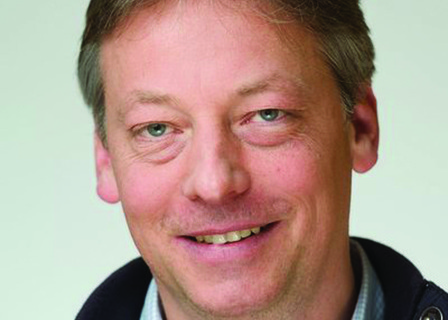Peer Fischer wins World Technology Award 2016
- 20 December 2016
- Micro, Nano, and Molecular Systems
Dr. Peer Fischer, head of the Micro- Nano- and Molecular Systems Lab at the Max Planck Institute for Intelligent Systems and Professor of Physical Chemistry, University of Stuttgart, has received the World Technology Award 2016. Professor Fischer was selected among 32 nominees and then among six finalists in the category “Information Technology – Hardware” that recognizes achievements in the field of IT hardware, including such significant subcategories as manufacturing and robotics.
The World Technology Awards are presented for “innovative work of the greatest likely long-term significance” to humanity. The awards in 20 different categories were announced at an "Innovation Celebration" held at the Los Angeles Times headquarters in Los Angeles on December 8th. “I am absolutely delighted that I have received the award,” Fischer said, who was not able to attend the ceremony. “It is a great honour that recognizes the research of my group.”
Together with his group, Peer Fischer has developed new 3D nanofabrication methods and nanorobots, made the first reciprocal microswimmer, and realized the first swimming soft microrobot that moves using only body shape changes. Recently, the first acoustic hologram was developed in his lab. He holds several patents on optical instruments, nanotechnology and robotic actuators.
The World Technology Network which presents the awards is a curated membership community comprised of the world’s most innovative individuals and organizations in science, technology, and related fields. The World Technology Awards are presented each year since 2000 to individuals and organizations. Award winners are nominated and selected by a peer-review process. Other 2016 winners include Geoff Ozin (Toronto) who won ‘Energy’, Moungi Bawendi (MIT) for ‘Materials’, John Kerry who won ‘Policy’, and Jeff Bezos (Amazon) who won ‘Space’. Last year’s award for ‘Biotechnology’ was won by Emmanuelle Charpentier from the Max Planck Institute for Infection Biology.


